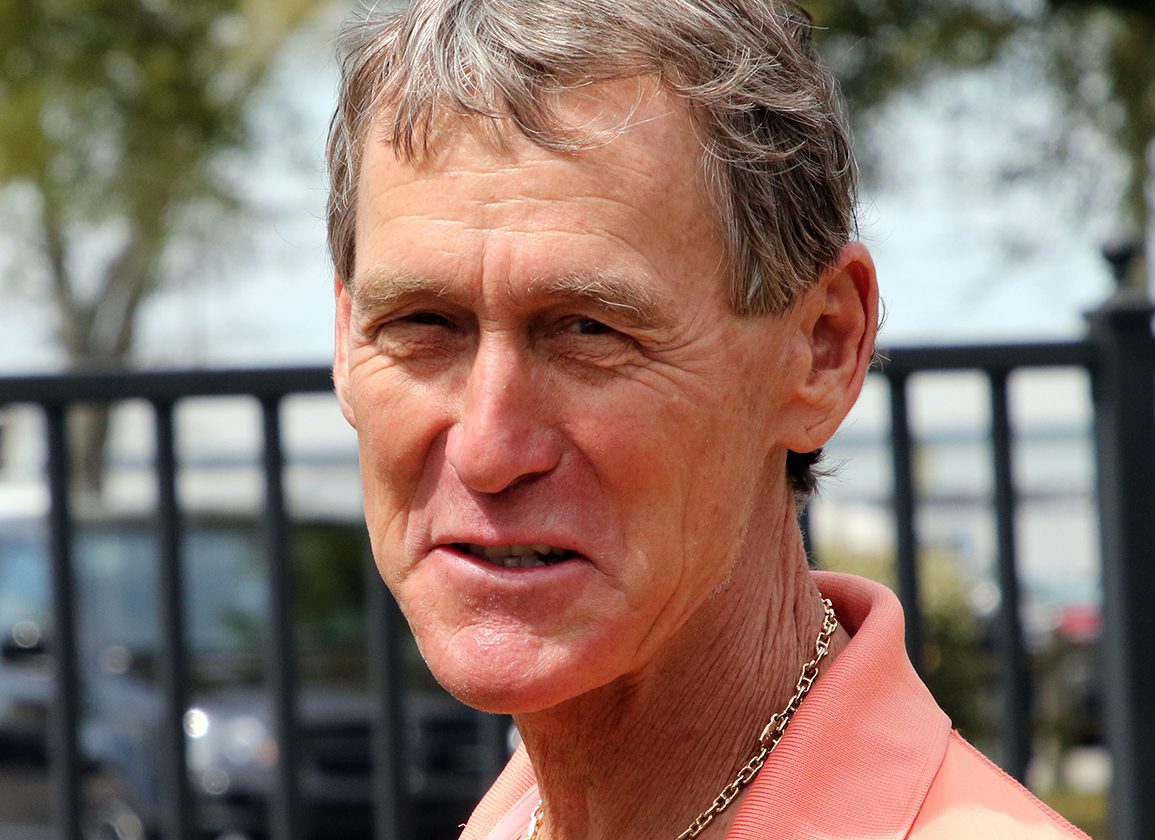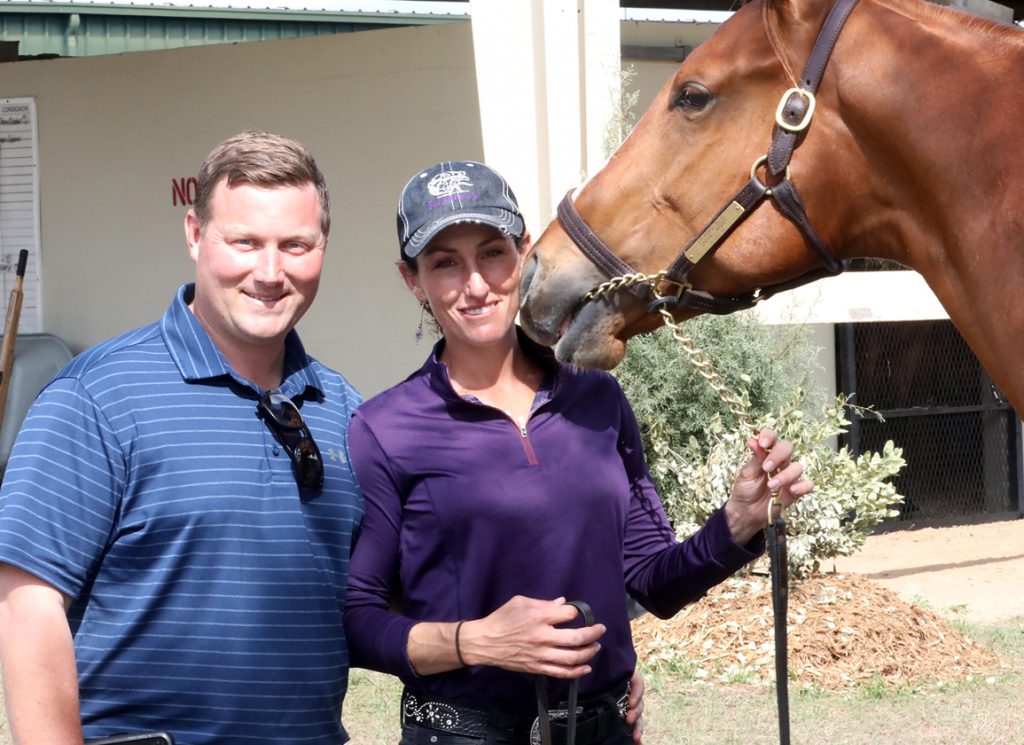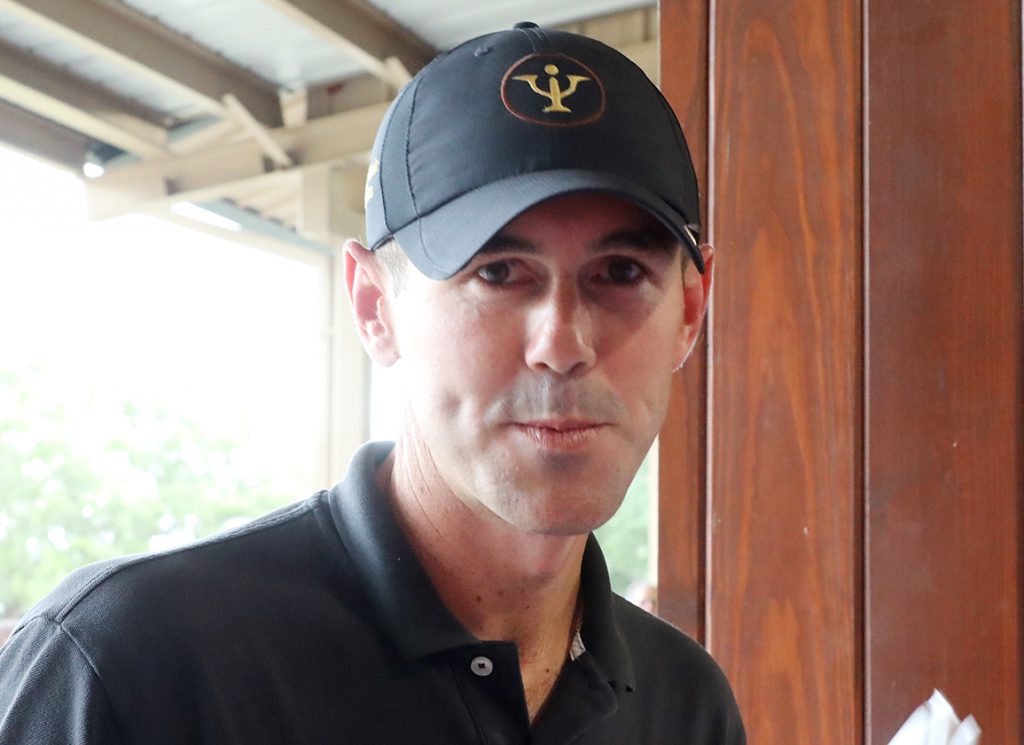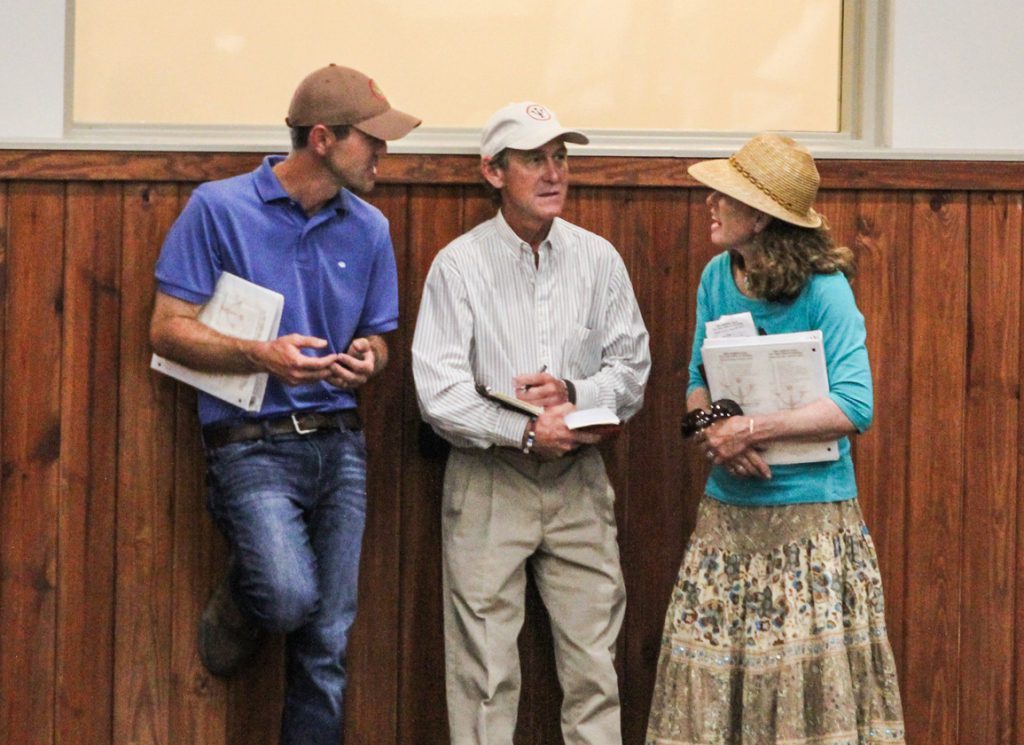By Chris McGrath
“It's a really difficult thing, to let go of something that you've spent your whole life building,” acknowledges Nick de Meric. “I don't know if 'letting go' is quite the right way to put it. But to actually cut that umbilical cord, it's a leap of faith.”
The Ocala horseman, who reflected on a colorful past in yesterday's TDN, now turns his attention to the future. For the evolution of a successor program, parallel to his own, makes the de Meric family a particularly pertinent case study for our series on how horse people handle the challenges of dynastic transition.
 And, really, Nick couldn't have used a more apposite analogy. The “umbilical cord” to which he refers, of course, is the one extending four decades to the foundation of the pinhooking and pre-training business he operates with his wife Jaqui. Albeit not by much, it even predates the advent of their son Tristan and daughter Ali. But while that literally umbilical connection between parents and their children is never truly severed, the handover of a family business requires long habits of filial duty and parental authority to be gently renounced. And that's a process that demands imagination, flexibility, generosity.
And, really, Nick couldn't have used a more apposite analogy. The “umbilical cord” to which he refers, of course, is the one extending four decades to the foundation of the pinhooking and pre-training business he operates with his wife Jaqui. Albeit not by much, it even predates the advent of their son Tristan and daughter Ali. But while that literally umbilical connection between parents and their children is never truly severed, the handover of a family business requires long habits of filial duty and parental authority to be gently renounced. And that's a process that demands imagination, flexibility, generosity.
As so often in these situations, Nick and Jaqui first had to establish whether, through nature or nurture, they had passed on a sense of vocation around horses-not to mention the accompanying skills.
“The guys I grew up with in the business, they're mostly around my age,” Nick remarks. “Some have kids who are looking like they're ready to assume the mantle; others don't. And when you've devoted your whole career to building a business, it's gratifying to have someone who can carry the torch forward for you, rather than just having to end it.”
Ali married another who was born to the game, in Brandon Rice, and in 2009 they started their own program very much in the same manner as Nick and Jaqui around 25 years previously. They scraped together enough for a couple of cheap yearlings, notably a $7,000 colt who made $200,000 at OBS the following April before going on to become a graded stakes winner. Building on that remarkable start, Ricehorse Stables has proceeded to become a respected presence on the national sales scene.
Tristan and his wife Val, meanwhile, have become integral to the home operation, while maintaining a degree of independence that has evidently worked well on both sides. That they, too, know what they are about is evident from the fact that they and prepared subsequent champion juvenile Corniche (Quality Road) to make $1.5 million at OBS.
But perhaps an even bigger turning point, for Tristan and Val, had come when Gabriel Dixon put back on the market a 60-acre tract he had previously bought from Nick and Jaqui, with access to their Eclipse Training Center complex.
“Tris and Val were looking for something to invest in, so they jumped at that chance,” Nick explains. “And since then two more barns have been built, which they're able to lease out and so make the real estate itself turn into a good investment.”
(Again, this has strong echoes of Nick and Jaqui's own story: we saw yesterday how they once paid off their own mortgage in much the same way.)
“So their business runs adjacent and parallel to mine,” Nick explains. “They use our racetrack. We pinhook together, but they also do plenty independently and so do I. And I hope that eventually this way of doing things will make for a fairly seamless transition.”
So was this incremental model a deliberate strategy, or did it just evolve organically?
“I would say a little bit of both,” says Nick. “In life generally, but particularly in our business, we all know that the best-laid plans can go sideways in a heartbeat. So I would not so much say that it was my plan, but that it was my hope. Because while you can't project anything in cast-iron, at the same time you at least need some drift and direction.”
With both their children, Nick and Jaqui imparted their horse lore more by osmosis than by formal instruction.
“Ali was always obsessed,” Nick recalls. “If I left for the barn in the morning without taking her, and I'm talking like 5:30, she would have a meltdown. She used to come with me to the Keeneland 2-Year-Old Sale, I'd let her out of school for a few days. And later she worked sales in Korea, Europe, all over the States.
“Tris was always more of a homebody, and not so much engaged in the horses as a kid: it was baseball, dirt bikes, boy stuff. So when he did decide that this really was his thing, it surprised us how much he had absorbed, just from being around us, from conversations at the dinner table and that kind of thing.
“Certainly he didn't come round to it through any pressure from us. This business is tough on a good day, and I would never press anybody to enter it unless they're passionate. But ever since then, he's taken it and run with it.”
Evidence of Tristan's inherited flair emerged during what are perhaps the two most critical weeks for all these programs, in scouting the September Sale at Keeneland.
“We all know how that's as much an exercise in logistics and stamina as in horsemanship,” Nick says. “You've just got to keep plugging on, and Tris was right there doing a very good job. And from early on I found, more and more, that I could absolutely rely on his eye. I could send him ahead to do this or that barn, and we could compare notes later. I was always super impressed with how analytical and critical an eye he had for horses, at such a young age. Some things you can teach, some you can't, and he just had that knack.”
And that trust has become the foundation of their teamwork ever since.
“It's a totally subjective thing,” Nick stresses. “It's about judgment, intuition, instinct. So you don't always agree on everything. But he not only could pick athletes, but also had a very good fix on the economics of what we do. Picking the right horse is not always the hardest part. Actually, getting them brought at a price you can make sense of, that's a big part of the equation too. And knowing what you can and can't live with, in terms of vetting and conformation. He's done incredibly well with all of that, way beyond anything I can take credit for.”
So much for the innate skills. In terms of structuring their professional responsibilities, however, the together-but- separate model appeals as one that other families might usefully emulate.
“On a normal training day at home, when we're just doing our thing in the winter, we're right next to each other,” Nick explains. “I'm usually on a pony, and Tris is right there, either on a pony himself or in the viewing stand with Valerie. So we're actually talking all the time. We're watching each other's horses.
We help each other out, whenever we can, or need to. But those over there are his horses, his riders; and these over here are my horses, my riders.
“We have clients in common, a lot of friends in common. But they have a following all of their own, which to their credit they have acquired quite independently of Jaqui and me. Conversely, most of my clients are now very familiar with them, and understand that we overlap a lot in our businesses. During a sale, they know they can talk to any of us and get all the information they may need.”
Nick is absolutely not going to pretend that it has been plain sailing all the way. At the best of times, it's never easy for one generation to know when and how much rein should be permitted to the next; and that's harder yet when the decision-making doesn't just affect personal development but the prosperity (or otherwise) of the whole family.
“I don't know if 'baggage' is quite the right word, but there's all the history that led you to this point,” Nick agrees. “As they say, the child is father of the man. So for someone in my position, who with his wife and partner has been making all the decisions, for better or worse-financial decisions, training decisions, client decisions-there comes a point when I have to say, 'Okay, you're in charge, it's your baby; I'm taking a sabbatical, I'm stepping back.' So far I've been easing back, but not pulling back.
“Sometimes you will see things a little differently. And that's where you have to learn to bite your lip and say, 'Okay, I might have done it this way instead-but I understand where he's coming from, let it go.' But most of us in this business, almost by definition, are control freaks to some extent. Because we have to be on top of everything. So that's a transition, too.”
That, however, is a price he considers well worth paying in order to see a life's work taken forward by his own flesh and blood. He cites friends whose children have no interest in doing that, and who will just have to call in a realtor someday.
“Neither Jacqui or I have any interest whatsoever in cashing in our chips and moving to a gated community,” Nick admits. “We are farm people. We have more dogs, cats, peacocks, goats, chickens, cows than you could count. Same for all the pets buried in the woods behind the house. We'd never move off the farm unless we absolutely had to. Behind every rock and tree, there's some little memory. And we're always going to ride, as long as we're physically capable.
“But that doesn't mean we have to keep going hammer and tongs. We've had so little time to really enjoy the farm for what it is. Just to get up in the morning, take a stretch, tack up our horse and just go wandering around. We've always been pedaling the bike.
“And we can see Tris and Val are doing a great job. It's great what they have done, working independently of me and alongside me. I can see the buyers are completely comfortable interacting with them. And that's allowing me to take a little step back. Maybe not quite as fast as Jaqui wants me to, but I'm working on that! I do worry, for both our kids and their families, about the collective legacy we're handing them in this sport. But I couldn't be prouder of what they have accomplished.”
Not a subscriber? Click here to sign up for the daily PDF or alerts.










